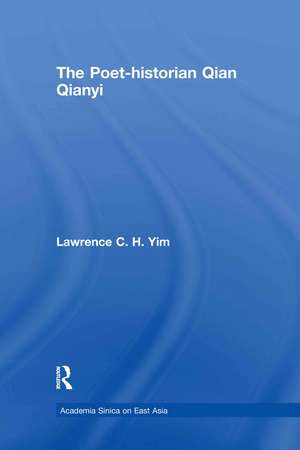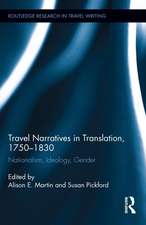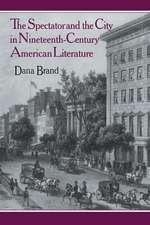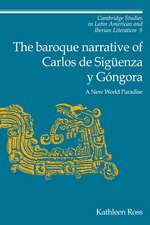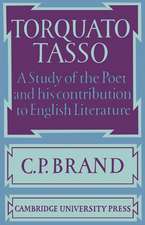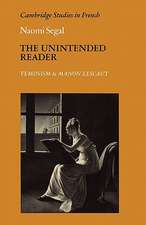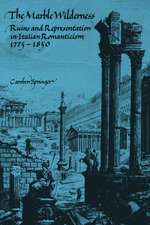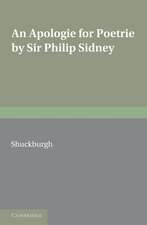The Poet-historian Qian Qianyi: Academia Sinica on East Asia
Autor Lawrence C.H Yimen Limba Engleză Hardback – 30 apr 2009
Lawrence C.H Yim focuses on Qian’s poetic theory and practice, providing a critical study of Qian’s theory of poetic-history (shishi) and a group of poems from the Toubi ji. He also examines the role played by history in early Qing verse, rethinking the nature of loyalism and historical memory in seventeenth-century China. Poetry of the Ming-Qing transition is distinguished by its manifest historical consciousness and the effort and give meaning to current historical events, an effort characterized by the pathos of introspection and mourning for the past..This pathos translates into what can be called a poetics of Ming loyalism, exemplified and championed by, intriguingly, the later works of Qian Qianyi himself.
Preț: 1010.65 lei
Preț vechi: 1364.14 lei
-26% Nou
Puncte Express: 1516
Preț estimativ în valută:
193.39€ • 202.42$ • 160.96£
193.39€ • 202.42$ • 160.96£
Carte tipărită la comandă
Livrare economică 31 martie-14 aprilie
Preluare comenzi: 021 569.72.76
Specificații
ISBN-13: 9780415494601
ISBN-10: 0415494605
Pagini: 240
Dimensiuni: 156 x 234 mm
Greutate: 0.23 kg
Ediția:New.
Editura: Taylor & Francis
Colecția Routledge
Seria Academia Sinica on East Asia
Locul publicării:Oxford, United Kingdom
ISBN-10: 0415494605
Pagini: 240
Dimensiuni: 156 x 234 mm
Greutate: 0.23 kg
Ediția:New.
Editura: Taylor & Francis
Colecția Routledge
Seria Academia Sinica on East Asia
Locul publicării:Oxford, United Kingdom
Public țintă
PostgraduateCuprins
Introduction Part 1: Qian Qianyi’s Theory Of Shishi And Historical Contexts 1. Qian Qianyi’s Theory Of Shishi and Poetics of Ming Loyalism 2. Qian Qianyi’s Reception in Qing Times Part 2: "Renouncing The Pen For The Sword", Three Readings Of Qian Qianyi’s Shishi 3. The Prophesying Poet-Historian 4. The Poet As Mentor and Strategist 5. Loyalty and Love at Parting. Conclusion
Notă biografică
Lawrence C. H. Yim received his Ph.D. from Yale University and is now Associate Research Fellow in the Institute of Chinese Literature and Philosophy at Academia Sinica, and Associate Professor of Chinese Literature, National Tsing Hua University, Taiwan. He has published articles on Ming-Qing poetry and literary theory and criticism.
Recenzii
'Yim achieves revelation on a level where few can work and where elusive but profound understandings lie. My own view of Qian Qianyi, an unavoidable figure for anyone who studies the seventeenth century in China, has been altered by this book, and my appreciation of poety as an important kind of source material for historians, also, has been heightened. I recommend it to anyone interested in the political and literary history of the Ming-Qing era.' - Lynn A., Struve, Indiana University, Bloomington, Journal of Chinese Studies, 2010
"Yim's book is an important and admirable effort in reviving Qian Qianyi's role in the Ming loyalist narrative. Compared to the life Qian Qianyi lived, enjoyed, and achieved, it is a tragedy that he had suffered such posthumous condemnation and prosecution. Yim has put together many significant and under-appreciated sources concerning Qian Qianyi's shishi ideas and the genre of yimin poetry. His argument for Qian Qianyi may be seen as the beginning of a revisionist history of the poetic tradition and its political implications during the Ming-Qing transition." - Hsueh-Yi Lin, Princeton University, Chinese Literature: 32 (2010)
"Yim's book is an important and admirable effort in reviving Qian Qianyi's role in the Ming loyalist narrative. Compared to the life Qian Qianyi lived, enjoyed, and achieved, it is a tragedy that he had suffered such posthumous condemnation and prosecution. Yim has put together many significant and under-appreciated sources concerning Qian Qianyi's shishi ideas and the genre of yimin poetry. His argument for Qian Qianyi may be seen as the beginning of a revisionist history of the poetic tradition and its political implications during the Ming-Qing transition." - Hsueh-Yi Lin, Princeton University, Chinese Literature: 32 (2010)
Descriere
Lawrence Yim focuses on Qian’s poetic theory and practice, providing a critical study of his theory of poetic-history (shishi) and poems from the Toubi ji. He also examines the role played by history in early Qing verse, rethinking the nature of loyalism and historical memory in seventeenth-century China.
